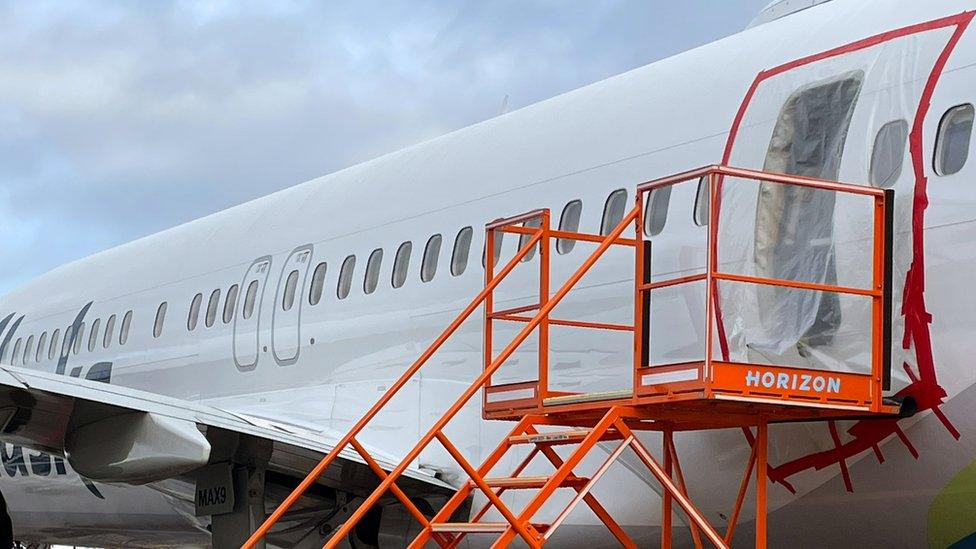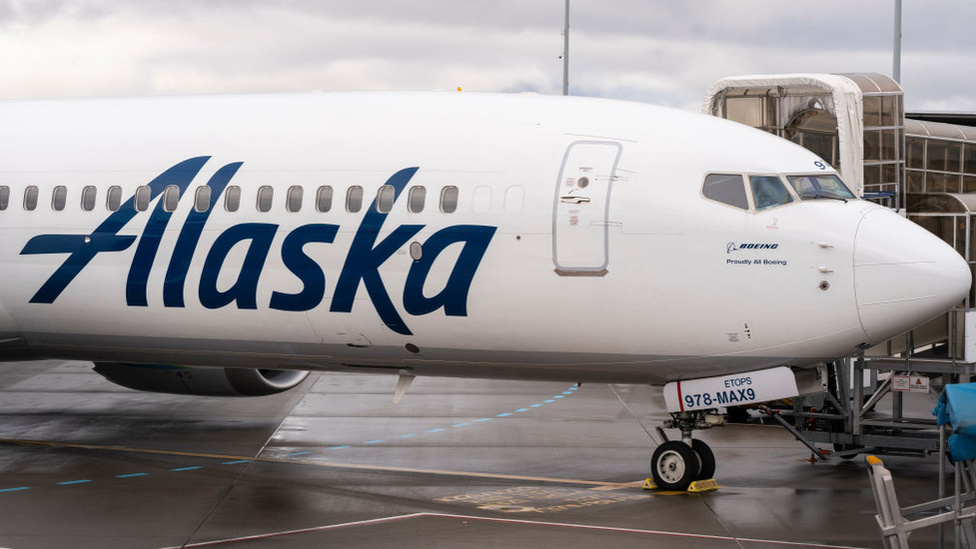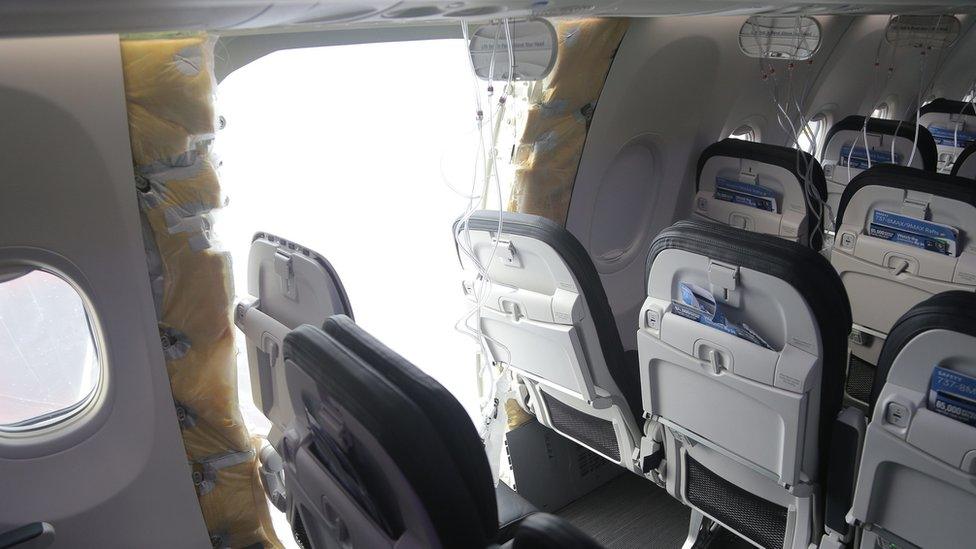Boeing shares stumble after mid-flight blowout
- Published

Shares in Boeing have slumped after one of its planes was involved in a dramatic mid-air blowout in the US.
A cabin panel tore off a 737 Max 9 flown by Alaska Airlines, forcing an emergency landing and prompting safety officials to ground the same-make jets installed with the affected door plug.
The US plane-maker's shares ended Monday trading down 8%, while shares in supplier Spirit Aerosystems fell 11%.
The incident added to quality questions facing the firms.
"It's more about the whole perception of Boeing as an operator and its long-term safety record," John Grant, chief analyst at the aviation analytics firm OAG, told the BBC's World Business Report programme.
"You have lots of individual incidents that are adding up to a very long catalogue of problems for Boeing and indeed for their airline customers who need to use these aircraft."
Boeing has been trying to emerge from the shadow of two high-profile crashes involving a different 737 model, the Max 8, in 2018 and 2019, which killed 346 people.
Boeing started developing the 737 Max in 2011 as a more fuel-efficient option for short and medium-length flights.
It has been popular with airlines but dogged by questions about quality arising from electrical faults, loose bolts and other issues, some of which have also involved Spirit AeroSystems.
Before the emergency near the Portland, Oregon airport, the firms' history had already drawn the attention of safety campaigners.
After the incident, the Federal Aviation Administration grounded 171 of the fleet of more than 200 737 Max 9 planes for inspection, leading hundreds of flights on Alaska, United and other airlines to be cancelled.
United on Monday said preliminary inspections had uncovered instances of installation issues related to the door plug - "for example bolts that needed tightening".
The news sent shares lower in afternoon trading.
Analyst Mr Grant said the industry generally had been having supply chain issues and struggling to deliver planes on time, leading to pressure to move more quickly.
"You just sense that perhaps something has slipped in Boeing and it's been like that for a couple of years and they haven't got to grips with it," he said.
"Boeing are really going to come back under the microscope again."
Boeing said earlier Monday that the assembly under review was not found on other Max jets and that it was committed to safety and working with regulators.
Spirit AeroSystems, which made and installed the part, had named a new chief executive in October. It said in a statement on Monday that its "primary focus" was "the quality and product integrity of the aircraft structures we deliver".
"We are grateful the Alaska Airlines crew performed the appropriate procedures to land the airplane with all passengers and crew safe," Spirit said in its statement.
"Spirit is a committed partner with Boeing on the 737 program, and we continue to work together with them on this matter."
The plane involved in Friday's emergency had been cleared to fly and put into service a few months ago.
Alaska Airlines staff had flagged it for pressurisation issues and the airline had restricted it from long flights over water.
Since the 2018 and 2019 accidents, arch-rival Airbus has taken the crown of world's top plane-seller, expanding its market share against Boeing.
Shares in the European firm rose more than 3% in trade on Monday.
- Published8 January 2024

- Published8 January 2024
